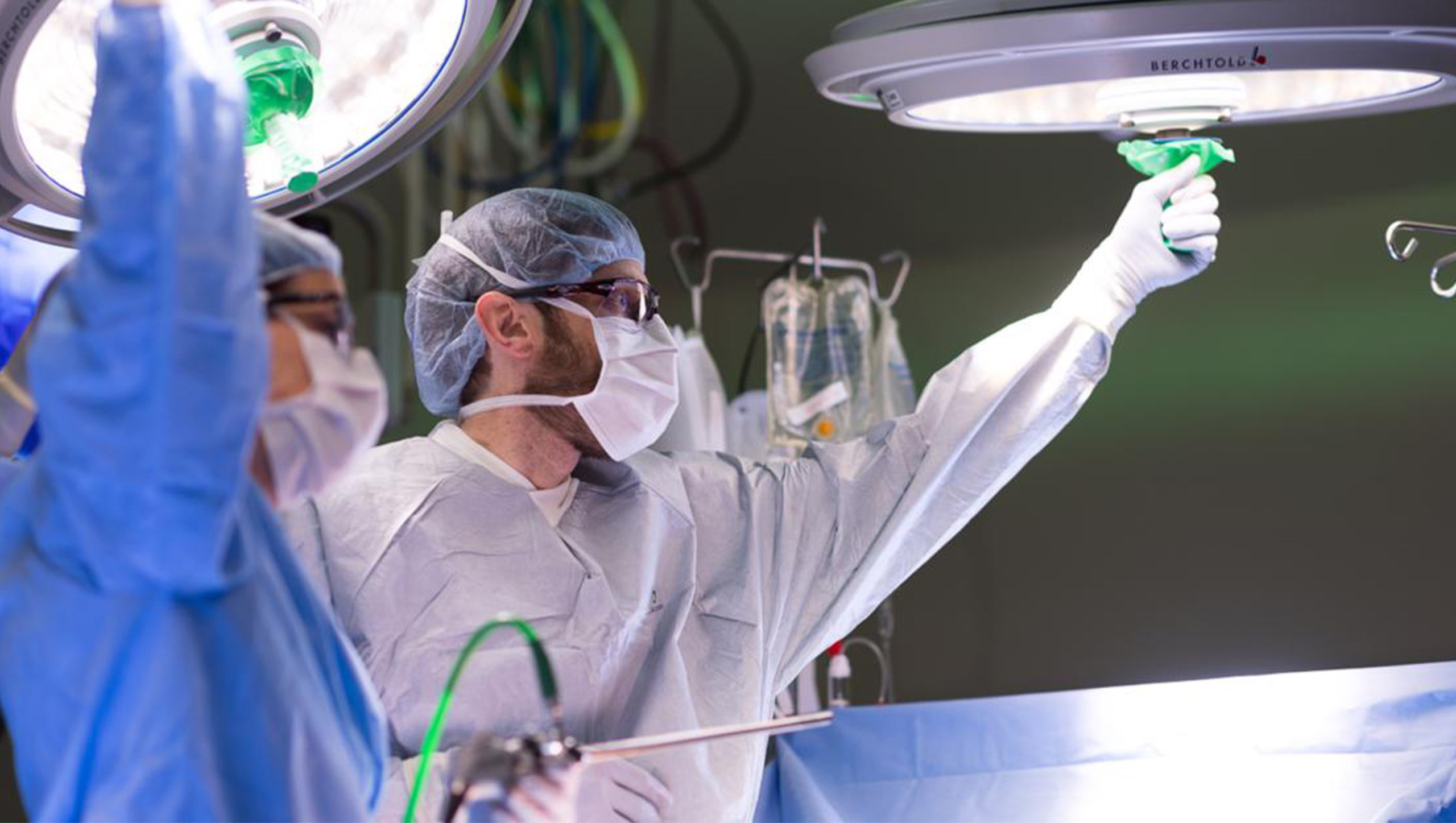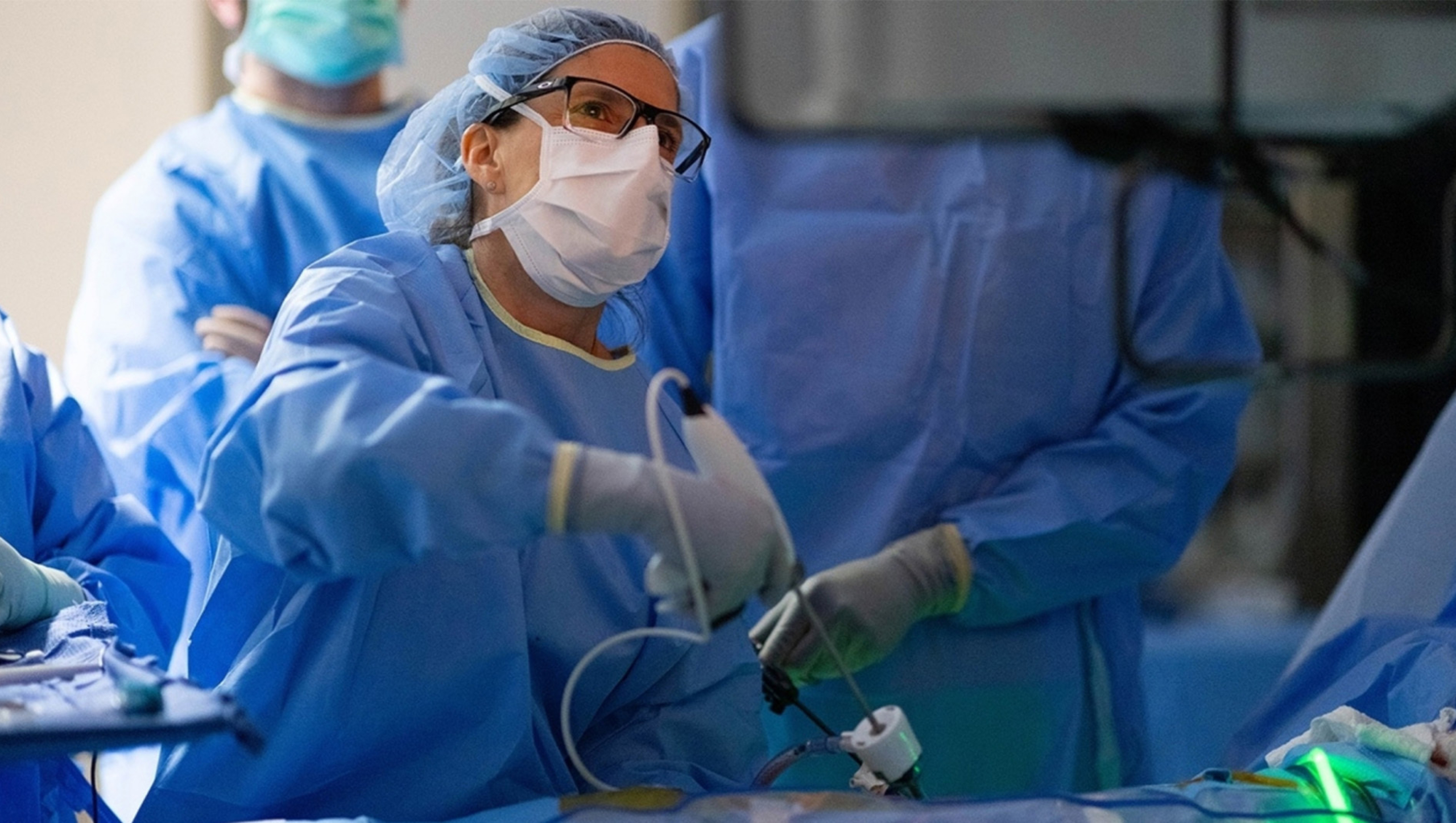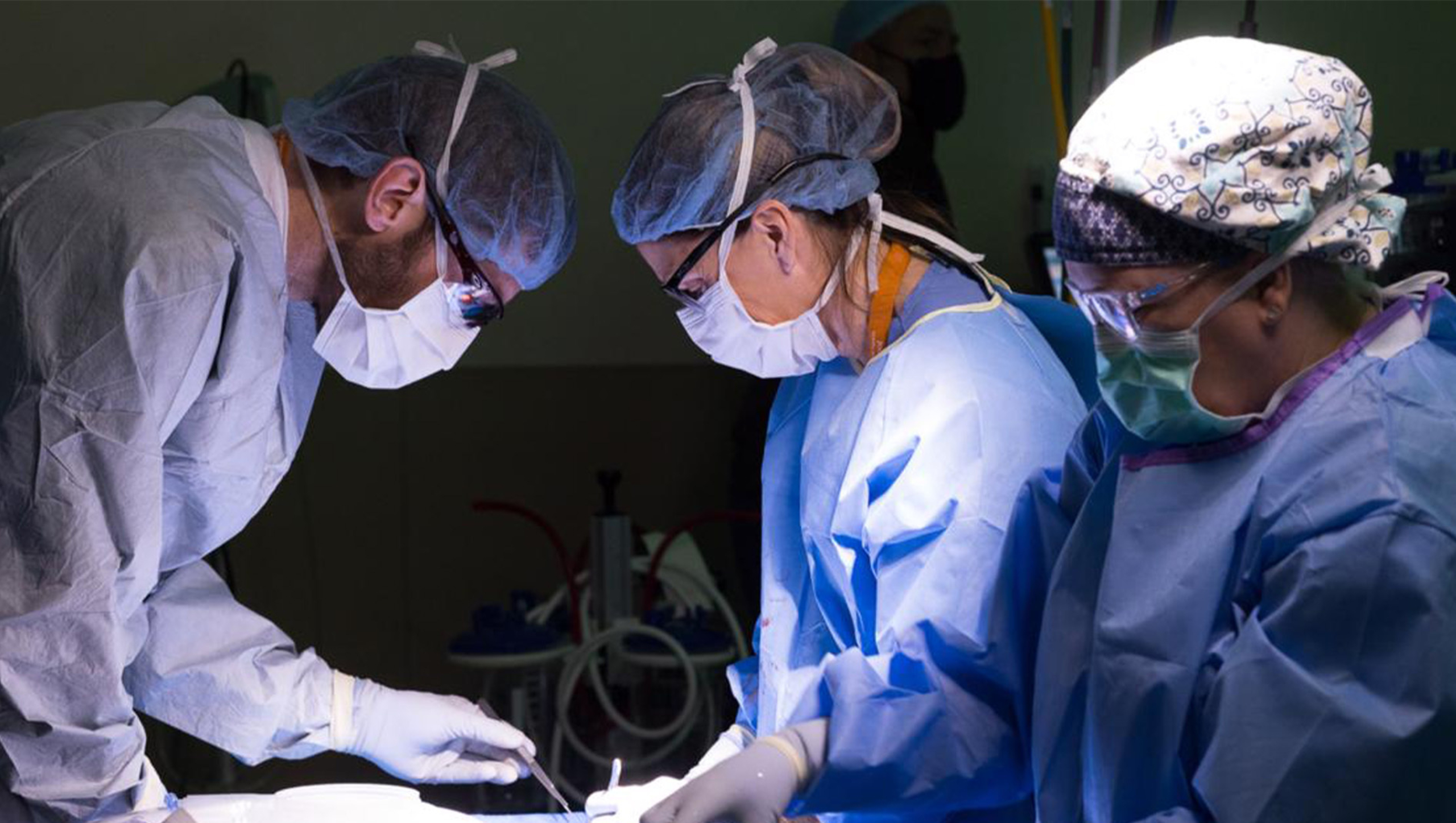The Division of Transplant Surgery provides comprehensive management of adult patients requiring either kidney (renal) or pancreas transplantation, as well as support and care for those willing to be a living kidney donor, in both Austin and throughout central Texas.



Areas of Focus
The division’s educational programs strive to provide excellent education and training of future health care leaders by exposing them to the complex management of end stage organ disease.
Undergraduate Medical Education
Surgery clerkship: The division provides a two-week elective for Dell Med students to engage with the evaluation, operative management and postoperative care of patients with end stage organ disease.
Graduate Medical Education
General surgery residency: The division is partners with faculty throughout the department to provide dedicated rotations during the five-year General Surgery Residency. The residency offers three categorical and three preliminary positions per year and has a special focus on value-based care and patient-centered health care delivery.
Residents also complete a Foundations in Care Transformation training, which emphasizes value-based care, quality improvement, equity, leadership and other key competencies in health systems science. The foundational training is part of Dell Med’s signature graduate medical education curriculum, Advancing Care Transformation.
Division faculty members are part of the adult Abdominal Transplant Center, a clinical partnerships between UT Health Austin and Ascension Seton.
Division faculty members provide highly specialized care to provide transplant services for transplant candidates and recipients, as well as for patients who are willing to be living kidney donors.
The division conducts research dedicated to improving equity in access to care for historically vulnerable populations.